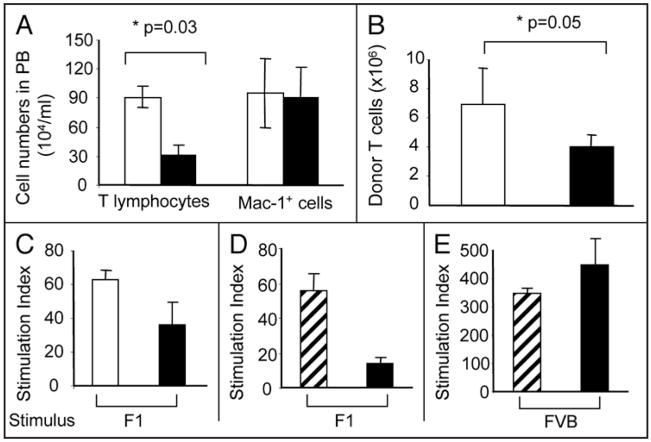Figure 5.
Roscovitine inhibits in vivo expansion of allogeneic donor T cells after BMT transplantation. Lethally irradiated B6D2F1 mice (H-2b/d) underwent transplantation with bone marrow cells and splenocytes from parental B6 donors as described in Materials and Methods. Recipients were given either roscovitine (filled bars) or vehicle (open bars) as described in Figure 4. (A) Seven days after BMT transplantation, total peripheral blood nucleated cells were counted; donor T cell (CD3+) and myeloid cell (Mac-1+) populations were determined by flow cytometry as described in Materials and Methods. Donor T cell expansion was significantly reduced (p = 0.03) in roscovitine treated recipients (n = 8) compared to non-treated recipients (n = 9). (B) Three weeks after BMT transplantation, total splenocytes were counted and donor T cells were determined by flow cytometry. Roscovitine significantly inhibited (p = 0.05) in vivo expansion of allogeneic T cells (n = 5 per group). (C–E) Three weeks (C) or 3 months (D and E) after BMT transplantation, T cells from roscovitine treated (filled bars), non-treated (open bars) recipients, or wild type B6 mice (hatched bars) were stimulated with irradiated allogeneic splenocytes from B6D2F1 or FVB mice and proliferative response was determined by [3H] incorporation. Stimulation index is expressed as the ratio of proliferation in response to host antigens (B6D2F1) or third party antigens (FVB) over proliferation in response to donor antigens (B6) and results are expressed as mean ± standard deviation (n = 3 for results shown in C, and n = 2 for results shown in D and E).

